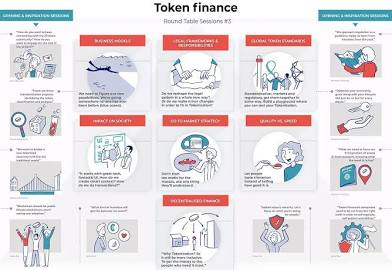IT IS YOUR MONEY
RWA Tokenization: Bridging Finance and Blockchain
Real World Asset (RWA) tokenization is revolutionizing finance by linking tangible assets like bonds, commodities, and real estate to blockchain technology. This bridge enhances liquidity, transparency, and accessibility across global markets. Institutions and investors are leveraging digital tokens to represent physical assets securely. Projects from Singapore to Switzerland demonstrate early success, setting the stage for widespread adoption in traditional finance.

Understanding RWA Tokenization
RWA tokenization refers to the process of converting ownership of physical or legally recognized assets—such as government bonds, agricultural commodities, or intellectual property—into digital tokens on a distributed ledger. These tokens are programmable, traceable, and can be traded 24/7 across borders without intermediaries.
Unlike cryptocurrencies, RWAs are backed by real economic value. For instance, a token representing a barrel of oil or a share in a corporate bond carries intrinsic value derived from the underlying asset. This makes RWAs a compelling hybrid between traditional finance (TradFi) and decentralized finance (DeFi).
Key Benefits for Investors and Institutions
One of the primary advantages of RWA tokenization is improved liquidity. Illiquid assets like private equity or fine art can be fractionalized and traded on secondary markets, unlocking capital. Additionally, settlement times drop from days to minutes, reducing counterparty risk.
Transparency is enhanced through immutable blockchain records, allowing stakeholders to verify ownership, transaction history, and compliance status in real time. For institutions, this reduces auditing costs and operational friction.
Notable Use Cases and Industry Adoption
Goldman Sachs issued a €100 million digital bond on a private blockchain in 2023, marking a milestone in institutional RWA adoption. In Singapore, the Monetary Authority launched Project Guardian to explore tokenized funds and interbank settlements using RWAs.
Commodities are also being tokenized. Citi and HSBC have piloted platforms for tokenized precious metals, enabling instant settlement and fractional ownership. Meanwhile, platforms like Centrifuge and Maple Finance allow businesses to collateralize invoices and real estate for DeFi lending.
Challenges and the Path Forward
Despite progress, challenges remain. Legal frameworks must evolve to recognize digital tokens as valid representations of ownership. Cross-border regulatory alignment is critical to avoid fragmentation.
Custody solutions for hybrid assets—part digital, part physical—require robust standards. Additionally, ensuring price stability and accurate valuation of tokenized assets demands reliable oracles and audit mechanisms.
As financial institutions increasingly integrate blockchain, RWA tokenization is poised to become a cornerstone of next-generation finance.
The convergence of real-world value and digital efficiency is reshaping how we invest, trade, and manage assets. With growing institutional participation, the future of finance is both digital and tangible.
Discover how RWA tokenization can transform your financial strategy—visit DigitalAssets.Foundation and consult with specialists for a FREE consultation.

More News
© 2026
